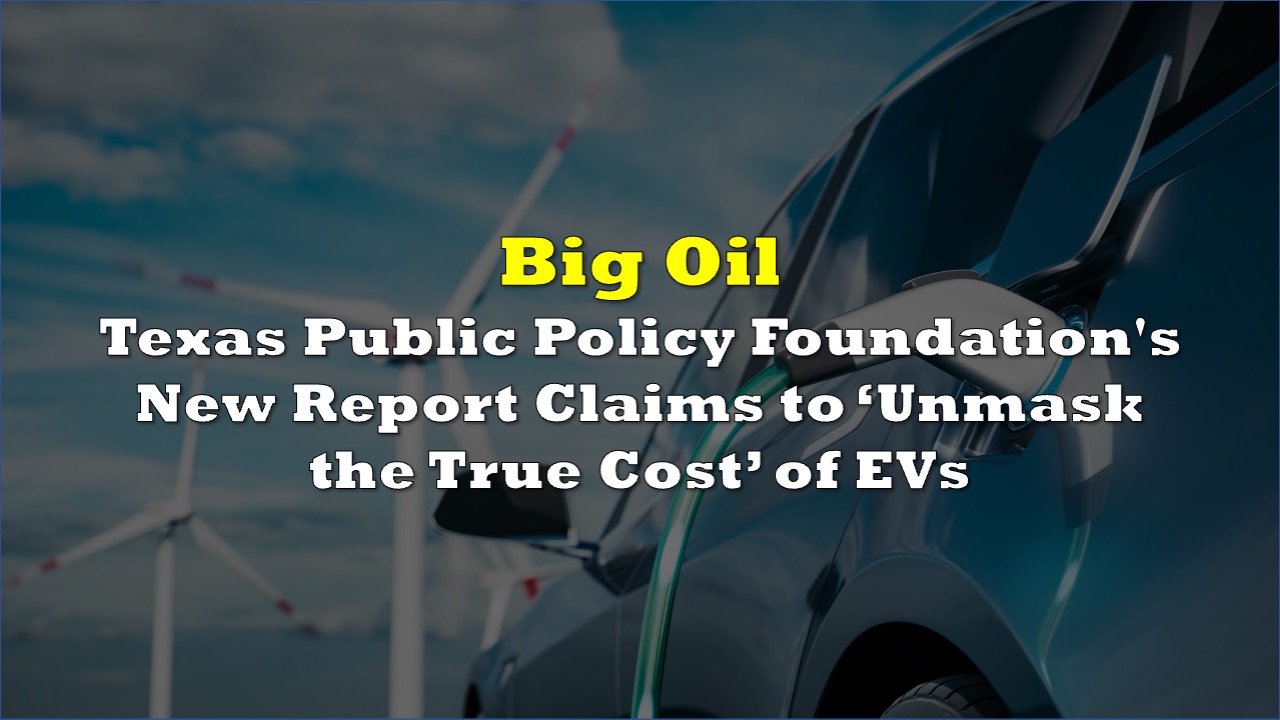The Texas Public Policy Foundation (TPPF) has released a new study, “Overcharged Expectations: Unmasking the True Costs of Electric Vehicles,” that takes aim at revealing “the true cost” of electric vehicles (EVs).
The study highlights several key points, notably that federal and state subsidies and regulatory credits artificially reduced the retail prices of EVs by an average of nearly $50,000, amounting to approximately $22 billion in total. It also makes the contentious claim that EVs receive excessive credits under federal fuel efficiency programs, significantly outweighing their actual fuel economy benefits.
NEW – True costs of fueling an electric vehicle, including excess charging costs and subsidies, is equal to $17.33 per gallon of gasoline, a new analysis found. https://t.co/SSSkctoMeO pic.twitter.com/B8fBGypSid
— Disclose.tv (@disclosetv) October 26, 2023
“The Biden administration and leftist states such as California have pushed for widespread electrification in less than 20 years through government subsidies and coercive regulations, but the price you see in the lot is not the true cost of an electric vehicle,” said TPPF’s Jason Isaac in apress release.
“Electric vehicle owners have been the beneficiaries of regulatory credits, subsidies, and socialized infrastructure costs totaling nearly 50 thousand dollars per EV. These costs are borne by gasoline vehicle owners, taxpayers, and utility ratepayers, who are all paying a hefty price for someone else’s EV.”
TPPF claims to be a non-partisan research institute, but a Wikipedia search would show that the organization’s donors include “energy companies Chevron, ExxonMobil, and other fossil fuel interests.” If the words “leftist states” in the press release soundbite and “EV apologists” in the study conclusion don’t give it away, TPPF has been described as right-wing and “dedicated to halting climate policy.”
The claim that EVs receive excessive credits under federal fuel efficiency programs may be a simplification of the complex regulations governing automotive emissions and fuel efficiency standards. These standards are designed to incentivize automakers to develop cleaner and more fuel-efficient vehicles.
Moreover, the calculation of these subsidies and credits does not take into account the long-term economic and environmental benefits of widespread EV adoption. It’s crucial to consider the potential societal advantages of reduced greenhouse gas emissions, reduced reliance on fossil fuels, and improved air quality. The study of course ignores that climate change, after all, is real and it is happening.
Information for this story was found via Reddit, TPPF, and the sources and companies mentioned. The author has no securities or affiliations related to the organizations discussed. Not a recommendation to buy or sell. Always do additional research and consult a professional before purchasing a security. The author holds no licenses.






